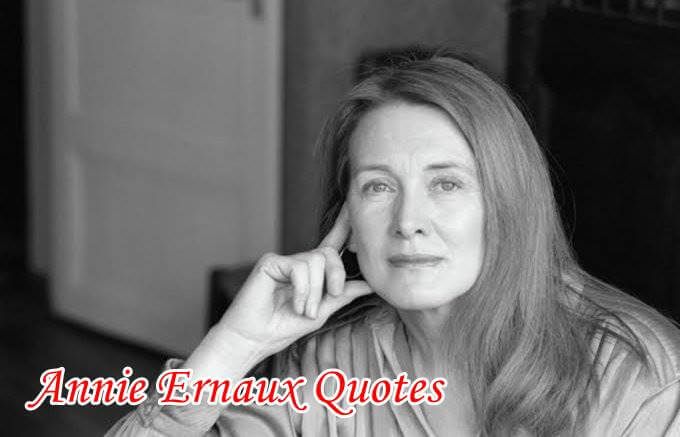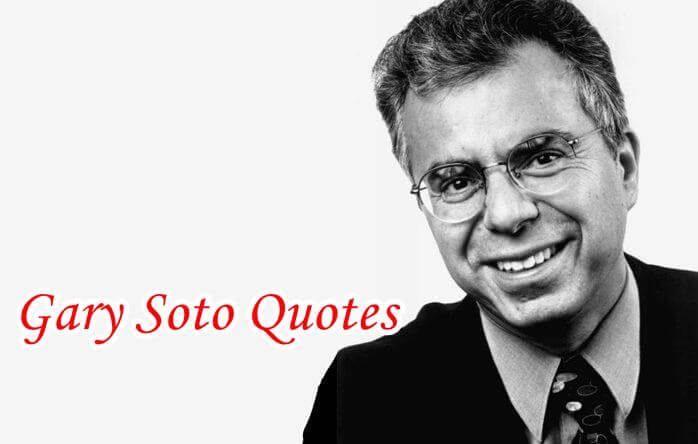Annie Ernaux Quotes…Annie Ernaux wins the 2022 Nobel prize in literatureThis year’s NobelPrize laureate in literature Annie Ernaux has said that writing is a political act, opening our eyes for social inequality. For this purpose she uses language as “a knife”, as she calls it, to tear apart the veils of imagination.
Annie Ernaux is a French writer.
She won the Prix Renaudot in 1984 for her book La Place, an autobiographical narrative focusing on her relationship with her father and her experiences growing up in a small town in France, and her subsequent process of moving into adulthood and away from her parents’ place of origin.
Annie Ernaux Quotes
“To grow old is to fade, to become transparent.”
“To exist is to drink oneself without thirst”
“Nous sommes une communauté de désirs, non d’action”
“Gone with the Wind” are just as decisive as the Oedipus complex”
“Pain cannot be kept intact, it needs to be “processed,” converted into humour.”
“I realize that I have left part of myself in a place where I shall probably never come back.”

“When I write I do not have the impression of looking inside me, I look inside a memory.”
“All the hardships I have endured were merely rehearsals to prepare me for this devastating pain.”
“My whole story as a woman: going down a flight of stairs, and hanging back at each step.”
“All the hardships I have endured were merely rehearsals to prepare me for this devastating pain.”
“Cette méchanceté était son ressort vital, sa force pour résister à la misère et croire qu’il était un homme.”
“I started to make a literary being of myself, someone who lives as if her experiences were to be written down someday.”
“She teaches me that the world is made to be pounced on and enjoyed, and that there is absolutely no reason at all to hold back.”
In conversation around a holiday table, we will be nothing but a first name, increasingly faceless, until we vanish into the vast anonymity of a distant generation.

“Maybe the true purpose of my life is for my body, my sensations and my thoughts to become writing, in other words, something intelligible and universal, causing my existence to merge into the lives and heads of other people.”
“Sometimes I wonder if the purpose of my writing is to find out whether other people have done or felt the same things or, if not, for them to consider experiencing such things as normal. Maybe I would also like them to live out these very emotions in turn, forgetting that they had once read about them somewhere.”
“Tout s’effacera en une seconde. Le dictionnaire accumulé du berceau au dernier lit s’éliminera. Ce sera le silence et aucun mot pour le dire. De la bouche ouverte il ne sortira rien. Ni je ni moi. La langue continuera à mettre en mots le monde. Dans les conversations autour d’une table de fête on ne sera qu’un prénom, de plus en plus sans visage, jusqu’à disparaître dans la masse anonyme d’une lointaine génération”
“Naturally I feel no shame in writing these things because of the time which separates the moment when they are written–when only I can see them–from the moment when they will be read by other people, a moment which I feel will never come. By then I could have had an accident or died; a war or a revolution could have broken out. This delay makes it possible for me to write today, in the same way I used to lie in the scorching sun for a whole day at sixteen, or make love wihout contraceptives at twenty: without thinking about the consequences”
ABOUT ANNİE ERNAUX
Annie Ernaux is a French writer. She won the Prix Renaudot in 1984 for her book La Place, an autobiographical narrative focusing on her relationship with her father and her experiences growing up in a small town in France, and her subsequent process of moving into adulthood and away from her parents’ place of origin. As a child, Annie Ernaux lived in Yvetot in Normandy. Very early in her career, she turned away from fiction to concentrate on autobiography. Her work combines historic and individual experiences. She charts her parents’ social progression , her adolescence , her marriage , her passionate affair with an eastern European man her abortion , Alzheimer’s disease , the death of her mother and breast cancer . Ernaux also wrote L’écriture comme un couteau with Frédéric-Yves Jeannet. Her 2008 historical memoir Les Années is considered by many to be her ‘magnum opus’: it was very well received by French critics and selected for the 2016 Premio Strega Europeo. In this book Ernaux writes of herself in the third person for the first time, providing a vivid look at French society from just after the Second World War until the early 2000s. It is the poignant social history of a woman and of the evolving society she lived in. Many of her works have been translated into English and published by Seven Stories Press. Ernaux is one of the seven founding authors of the press from which it got its name.


